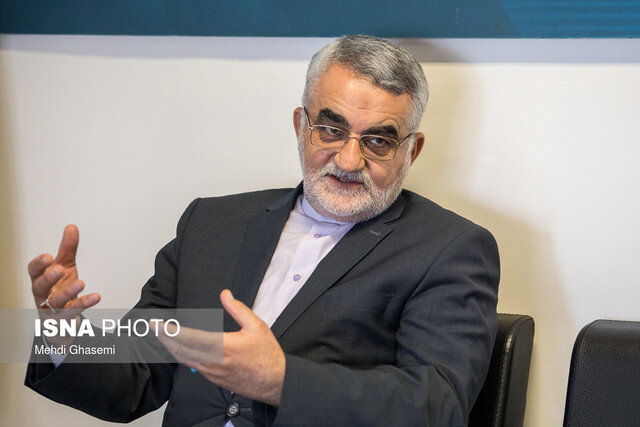Iran to work with China, Russia on nuclear deal: Boroujerdi

TEHRAN - Alaeddin Boroujerdi, a member of the Majlis National Security and Foreign Policy Committee, has said that Iran is working with Russia and China on the 2015 nuclear deal, known as the JCPOA.
In an interview with ISNA published on Friday, he said that Russia and China are implementing their commitments under the JCPOA.
He criticized Europeans’ lack of practical actions to preserve the nuclear deal.
“The Europeans signed the JCPOA and must implement their obligations. Britain, France and Germany, as major European countries, are obliged to implement their commitments, but failed to do so under the U.S. pressure,” he said.
He added that Iran will definitely continue reducing its nuclear obligations under the JCPOA if Europeans fail to meet their commitments.
On Tuesday, Leader of the Islamic Revolution Ayatollah Ali Khamenei said, “As stated by our foreign minister, who works hard, Europe has had eleven commitments, none of which it has met. The foreign minister, despite his diplomatic considerations, is clearly stating that. But what did we do? We acted based on our commitments, and even beyond that.”
Ayatollah Khamenei reiterated that Iran continued to stay committed to the JCPOA despite the fact that the Europeans violated the international agreement and yet demanded Iran to stay with its promises.
“Now that we have started to reduce our commitments, they step forward. They are very insolent, and they have not abided by their eleven commitments. We have just started to reduce some of our commitments, and this process will surely continue,” the Leader asserted.
On May 8, exactly one year after the U.S. withdrew from the multi-nation nuclear agreement and reimposed sanctions on Iran, Tehran announced a partial withdrawal from some aspects of the pact, saying that the country would no longer adhere to some of the limits on its nuclear activities. It also threatened to step up uranium enrichment if an agreement is not made within 60 days to protect it from the sanctions’ effects.
In follow-up to that deadline, on July 7 Iran announced that it has started enriching uranium to a higher purity than the 3.67% as the Europeans missed the 60-day deadline to devise a concrete mechanism to protect the country from the U.S. sanctions.
Behrooz Kamalvandi, spokesman for the Atomic Energy Organization of Iran (AEOI), said on Tuesday that for the time being, Iran will not pass uranium enrichment above 4.5 percent purity.
France, Germany, and the UK, the three parties to the JCPOA, issued a statement on Sunday reiterating their support for the deal.
British Foreign Minister Jeremy Hunt said that the nuclear deal is not dead “yet”.
According to the BBC, he said that there is a “small window” to save the deal.
Dutch Foreign Minister Stef Blok also said that “it is still not too late” to save the JCPOA.
French Foreign Minister Jean-Yves Le Drian said that Europe has to remain united in trying to preserve the nuclear deal.
“The Europeans have to stay united on this issue,” Reuters quoted Le Drian as saying.
Margot Wallstrom, Sweden’s foreign minister, said, “We will continue to talk to the Americans as well about how counterproductive this is and we’re not helped by further escalation of the sort of conflict between the U.S. and Iran.”
According to TASS, German Minister of State for Europe Michael Roth said, “Violating the nuclear agreement is completely unacceptable for us. As the European Union, we should speak with one voice on the matter.”
Finnish Foreign Ministry issued a statement on Sunday expressing support for preserving the JCPOA.
Foreign Ministry spokesman Abbas Mousavi said on Monday that Iran expects Europeans take practical actions to implement the deal.
“Iran expects the European partners to the JCPOA to take practical decision and actions which are effective and responsible in the procedure of implementing the JCPOA,” he stated.
NA/PA
Leave a Comment